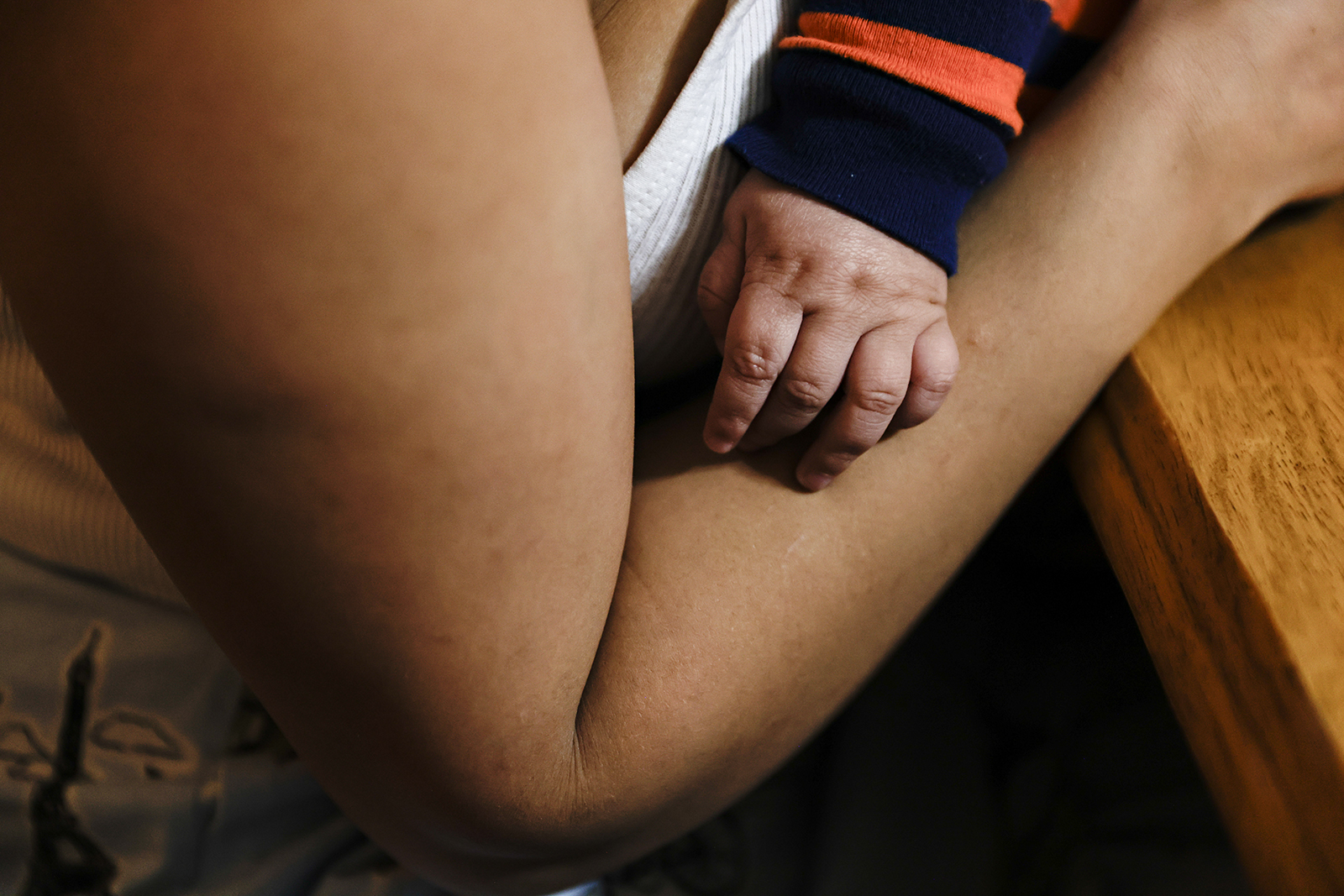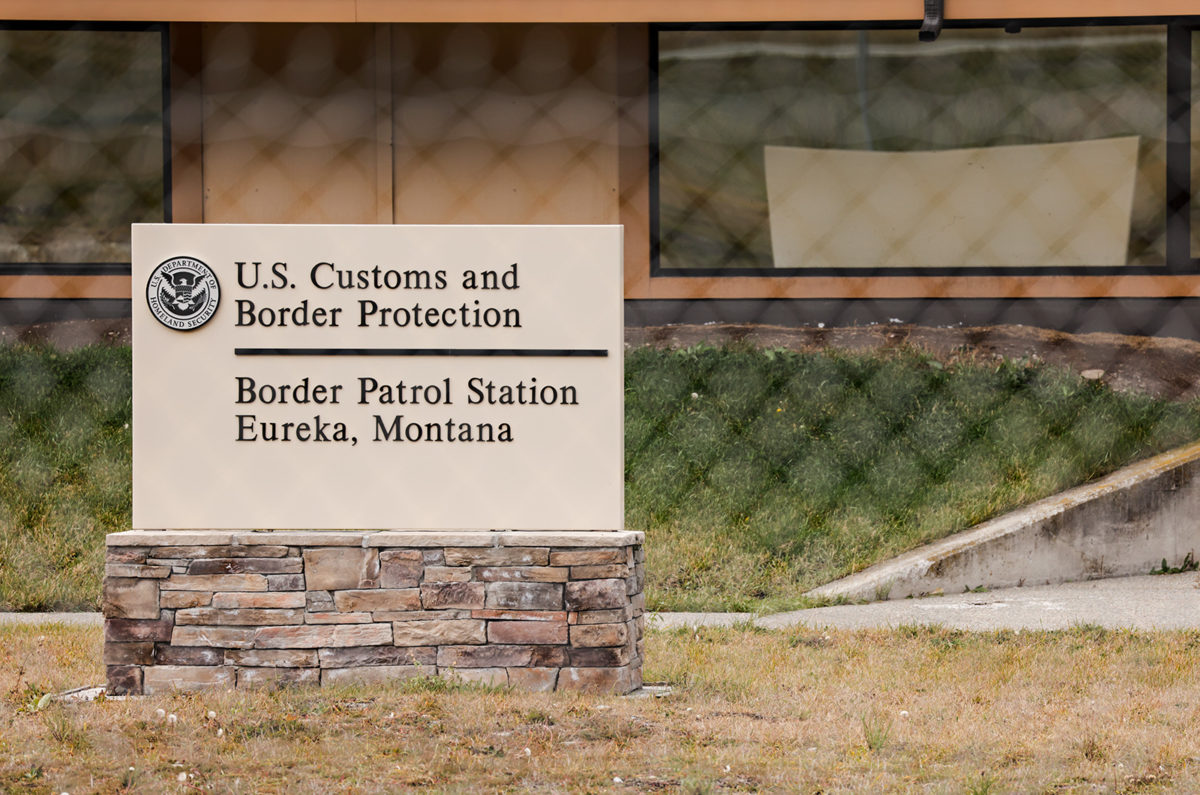‘I Feel Fear All the Time’: Flathead Valley Immigrant Communities Report Unease as Risk of Deportations Looms
Under directives from the White House, federal agencies have ramped up migrant arrests in the Flathead Valley. Fearing deportation, local Latino communities report a chilling effect, even among those with legal status.
By Denali Sagner
“Lo que viví y lo que vi no se lo deseo a nadie.”
“What I lived through and what I saw, I wouldn’t wish it on anyone.”
Sitting in a coffee shop, Luis, a recent arrival to the Flathead Valley from Venezuela, recounted his months-long journey from South America to Kalispell. In the quiet hum of a Montana morning, the experience Luis described stood in stark contrast to the valley around him. He recounted leaving his beloved home of Venezuela after watching the country’s economy collapse under an authoritarian government. He walked miles through the jungle on foot, seeing fellow travelers die along the way. For part of his journey, he was transported on a boat that lurched across the sea, nearly throwing him overboard. He watched police officers kidnap and extort people. He waited months for an appointment with U.S. Customs and Border Patrol (CBP) at the U.S.-Mexico border, caught in limbo between the world he had left behind and the uncertain one that lie ahead.
Now, reunited with family in Kalispell and working with legal authorization, he said the calm of Montana has washed over him.
“When you arrive in this country, you feel the tranquility,” he said, speaking in Spanish, which the Beacon has translated into English. Luis spoke to the Beacon on the condition of anonymity.
“That’s what’s beautiful, that you arrive in a country that’s calm and united.”
Luis is part of the Flathead Valley’s immigrant community, a demographic that has grown as the valley’s population has boomed since the COVID-19 pandemic. Refugees from Latin America have settled in the valley, in many cases leaving their fraught home countries in search of employment and political stability. Across the valley, Latino grocery stores, church services and immigrant advocacy organizations have cropped up. Members of the immigrant community report being welcomed in by local nonprofits and religious organizations that have helped them process paperwork, enroll their children in school, find work and learn English.
Since the inauguration of President Donald Trump, however, the fear of deportation has grown in the Flathead, as border patrol agents ramp up arrests and immigrants who were previously on the road to legal status find themselves in uncertain territory.

Luis moved to the Flathead Valley to join his sister, Daniela, who came to the area to follow her husband, who had left South America in search of a stable life for their family amid Venezuela’s turmoil.
Like Luis and Daniela, who also spoke to the Beacon on the condition of anonymity, a large swath of the Flathead Valley’s new arrivals are Venezuelans, a group that has become a major focus of the Trump administration’s immigration crackdown.
A once booming hotspot of oil wealth, Venezuela in recent years has devolved into economic and political crisis, driven by tumbling oil outputs and an authoritarian government, led first by Hugo Chávez and now by Nicolás Maduro. Hyperinflation, fixed elections, political repression and press censorship have marked the country’s crisis, driving hundreds of thousands of Venezuelans out of their homeland. Per the Migration Policy Institute, approximately 770,000 Venezuelan immigrants lived in the U.S. as of 2023.
When Luis was a child, he remembers Venezuela as “a real country,” a place where he could “live peacefully.” As the country devolved into political instability and its currency plummeted, Luis said, people lost everything.
Many Venezuelans have been granted temporary protected status (TPS), a special condition created by Congress in 1990 that allows certain immigrants to stay in the U.S. if their home country is deemed unsafe due to war or environmental crisis. TPS allows immigrants to receive work authorization and prevents them from being deported in up to 18-month increments. Venezuela is currently one of 17 countries on the TPS list, which includes El Salvador, Haiti, Nicaragua, Lebanon and Ukraine.
During his tenure in the White House, former President Joe Biden expanded TPS, granting 600,000 Venezuelans an extension on their protected status through 2026.
The Trump administration earlier this year, however, took swift aim at TPS, ending protections for 348,000 Venezuelans. A federal judge late last month blocked the decision, saying the administration’s directive threatened to “inflict irreparable harm” on hundreds of thousands of immigrants and “cost the United States billions in economic activity.”
The rollback of TPS is part of a larger aim by the Trump administration to curb migration and deport millions of immigrants. The president has signed executive orders limiting birthright citizenship; ending CBP One, a mobile app allowing immigrants to schedule appointments with border patrol ahead of their arrival in the U.S.; and bolstering the southern border with increased military force, among other policies. Federal judges in three states have blocked the Trump administration’s order limiting birthright citizenship. Most recently, the administration is moving to cancel the Social Security numbers of many immigrants who had previously obtained them lawfully, The New York Times reported.
“Every facet of the immigration system seems to have been impacted in some way,” Jennifer Ibañez Whitlock, previously with the American Immigration Lawyers Association (AILA) and now at the National Immigration Law Center (NILC), said.
In the first 50 days of the Trump administration, Immigration and Customs Enforcement (ICE) reported making 32,809 arrests, compared to nearly the same number in all of 2024.
In the Flathead Valley, local law enforcement has reported numerous arrests and detentions.
A Facebook page purportedly connected to the CBP Spokane Sector has reported multiple local arrests of migrants. Agents apprehended five undocumented immigrants in Hungry Horse on Jan. 27 following a citizen’s report. Agents from the Whitefish station reported apprehending four immigrants near Columbia Falls on Jan. 30, also due to a citizen’s report. On Feb. 25, the Whitefish station reported apprehending four immigrants from Mexico, one of whom had a conviction for driving under the influence and another who had been convicted of illegal re-entry into the U.S. Agents picked up 17 immigrants working on a construction site in Bigfork on March 4. On April 2, Whitefish agents reported assisting local law enforcement with a traffic stop that resulted in the arrest of two men from Mexico, three from Honduras and one from Guatemala. On April 4, border patrol agents from the Whitefish station arrested four Mexican nationals who will be processed for removal, per the Facebook page.
The CBP Spokane Sector did not respond to further questions about the cases or the authenticity of the Facebook page.
The Whitefish CBP station is one of eight stations under the Spokane Sector and is responsible for patrolling 35 miles of international border in Flathead County, as well as activity across northwest Montana and in Glacier National Park.

Columbia Falls Police Chief Chad Stephens said his officers have served as backup for and provided information to border patrol but have not sought out undocumented immigrants or attempted to enforce immigration law themselves.
“If we come across something that may be a violation of immigration laws, then we will forward that information to border patrol,” he said.
While his officers are able and willing to help CBP, Stephens said his department has not seen many such cases, adding that there has been some “sensationalizing” of the immigration issue.
Other law enforcement agencies in the Flathead — specifically the Flathead County Sheriff’s Office — have waded more aggressively into immigration in recent months, calling on the federal government to enforce immigration laws and stating that local immigrants are taking resources away from citizens.
After a Venezuelan migrant family arrived in Kalispell last May, setting off a political firestorm spearheaded by U.S. Rep. Ryan Zinke and Flathead County Sheriff Brian Heino, Heino released a letter reporting an increase in contacts with undocumented immigrants whose presence in the region, he said, had strained his already overwhelmed department. The sheriff said his deputies were spending more time handling calls for service and interfacing with individuals who did not speak English and had no proper documentation.
Heino did not respond to interview requests for this story.
The Flathead County Sheriff’s Department is among a group of local law enforcement agencies permitted to enforce some federal immigration law under Section 287(g) of the Immigration and Nationality Act. The Department of Homeland Security (DHS) and the Flathead County Sheriff’s Office in 2020 signed a memorandum of agreement allowing the sheriff’s office to serve and execute warrants of removal and arrest for designated immigrants in county jail. The program streamlines the process of transferring immigrants into ICE custody.
In Montana, two agencies hold 287(g) agreements: the Flathead and Gallatin county sheriff’s departments.
In the past six months, local arrests have had a chilling effect on the Flathead Valley’s immigrant community. To avoid traffic stops, some immigrants started walking long distances to work instead of driving. Others kept their children home from school. Some curtailed socializing outside of the home.
Cortnie Brooks, a longtime Flathead Valley resident who works with local immigrants, said she’s observed “a noticeable change in the way that our immigrant community operates.”
Even those with legal status report being nervous to leave their homes, Brooks said, as they’re afraid immigration or border patrol agents will be called on them simply for speaking Spanish.
Like her brother Luis, Daniela reported a harrowing journey from South America to the Flathead Valley, walking for days on end with her children in tow and being extorted by police officers. It took nearly a year for her and her two children to reunite with her husband. She called the experience “traumatic.”
Earlier this year, many immigrant families in the Flathead, like Daniela’s, had been keeping their children home from school, following national trends. While schools, churches and hospitals were historically off limits for immigration agents, the Trump administration attempted to reverse the policy in January, allowing law enforcement to enter the formerly protected areas. A judge blocked the directive in February.
In a statement on Jan. 21, DHS said, “Criminals will no longer be able to hide in America’s schools and churches to avoid arrest. The Trump Administration will not tie the hands of our brave law enforcement, and instead trusts them to use common sense.”
“I’m scared because I’ve done all my paperwork and everything for my children, but my son’s paperwork hasn’t come yet,” Daniela said. “I don’t want to imagine if something happens and they separate me from my son. I mean, I don’t know, I would die.”
Daniel Ramirez, a Kalispell resident and U.S. citizen who was raised in Mexico, but born in California, said, “Many of these people, including me, we are not going to the grocery store. We’re not driving.”
Ramirez moved to the Flathead Valley in 2020 at the encouragement of his brother, who already lived in the area. His job in California had come to a halt due to the pandemic, and he was able to pick up work at a local restaurant. Despite being a U.S. citizen, Ramirez said he is frequently asked about his immigration status.
“At the first second that I wake up, at the last second that I go to sleep, I feel fear all the time,” he said. “I’m feeling really tired. Really, really tired. Because I wake up, and I go to the grocery store, I go to put gas in my car, and I have to prove who I am every day.”
When asked what type of life he envisioned for himself before the Venezuelan government collapsed, Luis described “a wonderful future.” He hoped to use his college degree, get married and have a family of his own.
He said it’s a misconception that immigrants like himself wanted to leave their home countries. Rather, he and many others are forced to decide between familiarity and stability, often launching them into a tenuous journey to the U.S.
“This is my future,” he remembered thinking, watching his home country devolve into instability. “It can’t stop here.”
Luis entered the U.S. through CBP One, the Biden-era program that incentivized migrants to register online and wait for an appointment at the border rather than enter the country without being processed by law enforcement. Those who registered with CBP One were given a notice to appear in immigration court and were granted temporary work authorization and the ability to begin the asylum process.
Now, the Trump administration has begun notifying those who entered through CBP One that their parole status is being terminated and that they must leave the U.S.
Despite his fears around his immigration status, he is relieved to be in the Flathead Valley. He’s taking English classes and working. He sees his family. He described being taken aback by the beauty of Glacier National Park, by the contrast between the snow and the mountains.
He talks often about contributing his “grain of sand” to America’s vast metaphorical beaches.
“That’s the goal now,” he said. “To be calm, to contribute good ideas to Montana, to this state that is opening its doors to us where we have met people who truly want the best for us.”
Some names have been changed to protect the anonymity of sources.